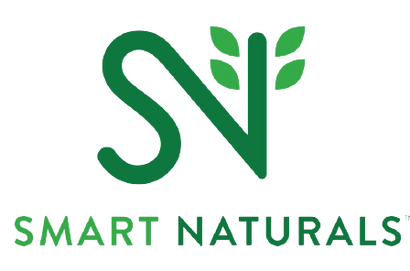The health of our gut microbiome has become a focal point in wellness discussions, and for good reason. A thriving gut ecosystem is essential for overall health, influencing everything from digestion to immune function and even mental well-being. While probiotics have gained significant attention, prebiotics are equally crucial in maintaining a healthy gut. This article explores prebiotic-rich foods and how they nourish and support the growth of beneficial gut bacteria.
Understanding Prebiotics

Before diving into specific foods, it's important to understand what prebiotics are:
Definition: Prebiotics are types of dietary fiber that feed the friendly bacteria in your gut.
Key characteristics:
- Indigestible by human enzymes
- Fermented by gut bacteria
- Selectively stimulate the growth and/or activity of beneficial gut microbes
The primary types of prebiotics include:
- Inulin
- Fructooligosaccharides (FOS)
- Galactooligosaccharides (GOS)
- Resistant starch
Top Prebiotic-Rich Foods
1. Whole Grains

Whole grains are excellent sources of prebiotics, particularly beta-glucan fiber.
Examples:
- Oats
- Barley
- Wheat bran
Benefits:
- Support growth of Bifidobacteria and Lactobacilli
- May help lower cholesterol and regulate blood sugar
How to incorporate:
- Start your day with a bowl of oatmeal
- Use barley in soups and stews
- Choose whole grain bread over refined varieties
2. Onions and Garlic

These Allium family vegetables are rich in inulin and fructooligosaccharides.
Benefits:
- Promote growth of Bifidobacteria
- May help improve immune function
- Have antimicrobial properties
How to incorporate:
- Add raw onions to salads
- Use garlic in cooking for flavor and health benefits
- Try roasted garlic as a spread
3. Asparagus

Asparagus is a nutrient-dense vegetable high in inulin.
Benefits:
- Supports growth of beneficial bacteria
- May help reduce inflammation
- Rich in antioxidants
How to incorporate:
- Grill or roast asparagus as a side dish
- Add to stir-fries
- Include in omelets or frittatas
4. Bananas

Particularly when slightly underripe, bananas contain resistant starch and pectin.
Benefits:
- Feed beneficial bacteria
- May help with mineral absorption
- Support digestive health
How to incorporate:
- Enjoy as a snack
- Add to smoothies
- Use in baking as a natural sweetener
5. Jerusalem Artichokes

Also known as sunchokes, these tubers are one of the richest sources of inulin.
Benefits:
- Strongly promote growth of beneficial bacteria
- May help improve insulin sensitivity
- Support bone health
How to incorporate:
- Roast with other root vegetables
- Slice thinly and add to salads
- Puree into soups
6. Chicory Root

Chicory root is often used as a coffee substitute and is extremely high in inulin.
Benefits:
- Potent prebiotic effect
- May help improve digestion
- Supports liver health
How to incorporate:
- Use as a coffee alternative
- Add to smoothies
- Use in baking for added fiber
7. Leeks

Another member of the Allium family, leeks are rich in prebiotic fibers.
Benefits:
- Support growth of beneficial bacteria
- May help reduce inflammation
- Rich in flavonoids with antioxidant properties
How to incorporate:
- Use in soups and stews
- Sauté as a side dish
- Add to quiches or savory tarts
8. Apples

Apples contain pectin, a prebiotic fiber that feeds beneficial gut bacteria.
Benefits:
- Support growth of Bifidobacteria and Lactobacilli
- May help regulate blood sugar
- Rich in antioxidants
How to incorporate:
- Enjoy as a snack
- Add to salads
- Use in baking
The Impact of Prebiotic Foods on Gut Health
Consuming prebiotic-rich foods can have several positive effects on gut health:
1. Increased Microbial Diversity
A diverse gut microbiome is associated with better overall health. Prebiotics help support a wide range of beneficial bacteria.
2. Enhanced Nutrient Absorption
By promoting the growth of beneficial bacteria, prebiotics can improve the absorption of minerals like calcium and magnesium.
3. Improved Digestive Function
Prebiotics can help regulate bowel movements and may alleviate symptoms of certain digestive disorders.
4. Strengthened Immune Function
A significant portion of our immune system resides in the gut. Prebiotics support the growth of bacteria that play a role in immune regulation.
5. Production of Short-Chain Fatty Acids
When gut bacteria ferment prebiotics, they produce short-chain fatty acids, which have numerous health benefits, including reducing inflammation and supporting colon health.
Incorporating Prebiotic Foods into Your Diet
To maximize the benefits of prebiotic foods:
1. Gradually Increase Intake: Start slowly to allow your digestive system to adjust.
2. Aim for Variety: Consume a range of prebiotic-rich foods to support diverse bacterial growth.
3. Pair with Probiotics: Combine prebiotic foods with probiotic sources for a synbiotic effect.
4. Choose Whole Foods: Opt for whole food sources of prebiotics over supplements when possible.
5. Consider Cooking Methods: Some cooking methods can affect the prebiotic content of foods. For example, raw garlic has higher prebiotic content than cooked garlic.
Potential Considerations
While prebiotic foods are generally beneficial, keep in mind:
1. Digestive Discomfort: Some people may experience bloating or gas when first increasing prebiotic intake. Start slowly and increase gradually.
2. FODMAP Sensitivity: Some prebiotic-rich foods are high in FODMAPs, which can be problematic for individuals with IBS. Consult a healthcare provider if you have concerns.
3. Individual Variations: The impact of prebiotics can vary from person to person. Pay attention to how your body responds.




